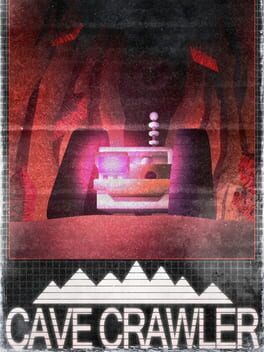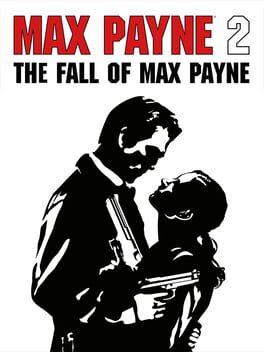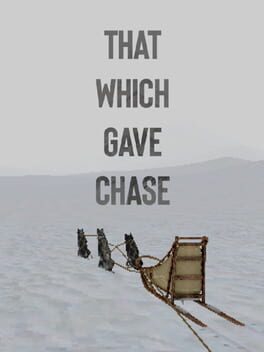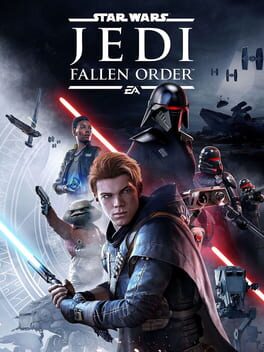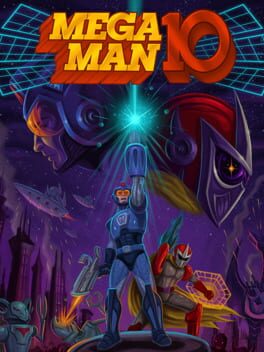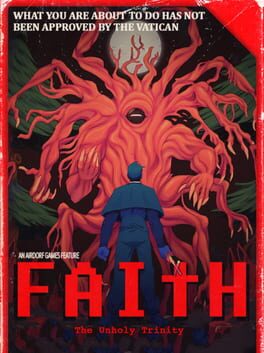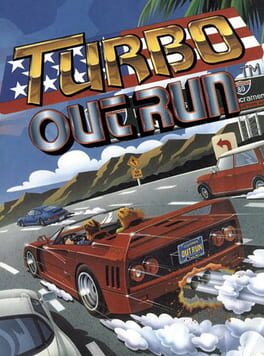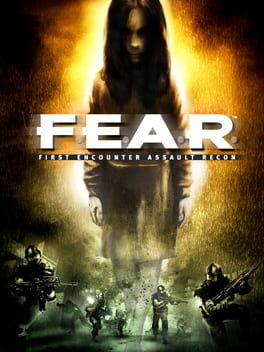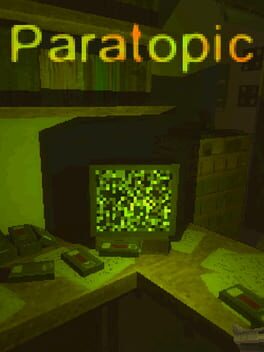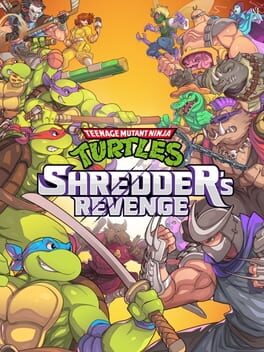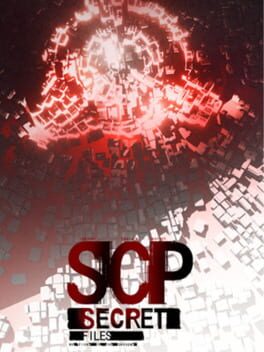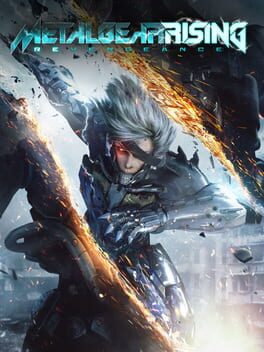metrizans
2023
A short, tense found footage horror game inspired by the "Advanced Mining Vehicle" short film. It's incredibly simplistic, but that is what makes it work so well. It's not an entirely linear experience; some objectives can be done out of order, leading to a different ending to some of the tapes. There are a couple of secrets that are pretty easy to miss, usually foreshadowing future events. It isn't a wholly original idea, by any means, but it succeeds in its execution, and is definitely worth checking out.
Aesthetically, Max Payne 2 is a success. It nails the noir vibe very well. The story is pretty pulpy, but entertaining nevertheless. The visuals are a complete step up from the first game, and still look great today. That said, mechanically, it feels like a game that was pretty solid at the time of its release, but unfortunately has been improved upon by games in its genre over time.
In particular, the camera distance is a bit too far behind Max; fighting enemies in a large area often felt like picking ants off a wall with a pistol. Enemy reaction speed doesn't really account for this, and I found myself regularly killed by foes I couldn't parse amidst environmental details. I did some searching, and found a mod that allows you to edit camera distance values. I pulled in the camera in closer, above the waist, pointing over Max's shoulder, and found myself having more fun with the game. It increased my precision, at little to no cost of spatial awareness.
Out of curiosity, I tried out a first person mod, and found the transition surprisingly seamless. It makes sense that this feels almost like it was designed as an FPS. Third person games weren't as fleshed out at the time Max Payne 2 released. With a lot of the standouts in the genre, you notice that enemies aren't as snappy to react as they are in first person shooters, as player perception is inhibited in comparison. There is also usually a mix of hitscan, projectile, and melee enemies, where as this game only really has the first in the list. Though this is purely an observation, not necessarily a flaw of the game.
I also have a few nitpicks with some of Max's movement options. Crouching is more important than you might think. It shrinks Max's hitbox a considerable size, and helps steady sniper aim. That said, you can't move while crouching, and you can't toggle crouching. Really, the former I can live without, but the latter would've been appreciated. The dive mechanic looks cool, but I didn't find much use for it, and I honestly completed the game fine without it.
That said, I loved pretty much everything else about the game. The gun-feel is incredible. The arsenal is huge, and I found myself using every weapon in the game. Max's mobility options, despite my nitpicks, are pretty robust. The time-stop is an incredibly useful mechanic, and it is fun learning how to use it properly. The combat itself is perfect, and once I amended my issues with the camera, I found myself having a ton of fun with the game's various combat scenarios.
I also want to quickly shout out the Xbox port, which I played a few levels from out of curiosity. It doesn't look much worse than the PC port at its highest settings. The enemy speed is lowered; almost a bit too slow, but it does make the game a lot more manageable. That said, you no longer have the precision of a mouse, so it evens out. The control scheme is surprisingly good! Crouch can be toggled in this version, which fixes one of my earlier issues. My only complaint is no adjustable aim sensitivity, instead replaced with a button that increases your aiming speed. Overall, it's a nice port, and a good way to play this game, especially if you'd rather play with a controller!
Max Payne's writing, coming from Remedy, has always intrigued me. I am a sucker for anti-heroes, and Max isn't a perfect person. We know this. He knows this. We also know the institutions he's dedicated his life to are corrupt at the core, and I love that these games are willing to have that dialogue, steering away from being copaganda. It could be said that this game, compared to the first, focuses a lot more on character relationships than it does on any sort of subtext, but I thought it was fine. The final cutscene is a bit anticlimactic, especially after the amazing final setpiece. That said, the cast is fun, the writing is great, and I'm a sucker for the little comic-book interludes.
Overall, I enjoyed my time with Max Payne 2. It improves upon the first game in a lot of ways. It is a little dated in this day and age, but its still an enjoyable experience. The game clocks out at around 5 hours, which in my opinion, is the perfect length. If you enjoyed the first game, and wanted more of this world, give it a shot. Chances are you'll really like this one.
In particular, the camera distance is a bit too far behind Max; fighting enemies in a large area often felt like picking ants off a wall with a pistol. Enemy reaction speed doesn't really account for this, and I found myself regularly killed by foes I couldn't parse amidst environmental details. I did some searching, and found a mod that allows you to edit camera distance values. I pulled in the camera in closer, above the waist, pointing over Max's shoulder, and found myself having more fun with the game. It increased my precision, at little to no cost of spatial awareness.
Out of curiosity, I tried out a first person mod, and found the transition surprisingly seamless. It makes sense that this feels almost like it was designed as an FPS. Third person games weren't as fleshed out at the time Max Payne 2 released. With a lot of the standouts in the genre, you notice that enemies aren't as snappy to react as they are in first person shooters, as player perception is inhibited in comparison. There is also usually a mix of hitscan, projectile, and melee enemies, where as this game only really has the first in the list. Though this is purely an observation, not necessarily a flaw of the game.
I also have a few nitpicks with some of Max's movement options. Crouching is more important than you might think. It shrinks Max's hitbox a considerable size, and helps steady sniper aim. That said, you can't move while crouching, and you can't toggle crouching. Really, the former I can live without, but the latter would've been appreciated. The dive mechanic looks cool, but I didn't find much use for it, and I honestly completed the game fine without it.
That said, I loved pretty much everything else about the game. The gun-feel is incredible. The arsenal is huge, and I found myself using every weapon in the game. Max's mobility options, despite my nitpicks, are pretty robust. The time-stop is an incredibly useful mechanic, and it is fun learning how to use it properly. The combat itself is perfect, and once I amended my issues with the camera, I found myself having a ton of fun with the game's various combat scenarios.
I also want to quickly shout out the Xbox port, which I played a few levels from out of curiosity. It doesn't look much worse than the PC port at its highest settings. The enemy speed is lowered; almost a bit too slow, but it does make the game a lot more manageable. That said, you no longer have the precision of a mouse, so it evens out. The control scheme is surprisingly good! Crouch can be toggled in this version, which fixes one of my earlier issues. My only complaint is no adjustable aim sensitivity, instead replaced with a button that increases your aiming speed. Overall, it's a nice port, and a good way to play this game, especially if you'd rather play with a controller!
Max Payne's writing, coming from Remedy, has always intrigued me. I am a sucker for anti-heroes, and Max isn't a perfect person. We know this. He knows this. We also know the institutions he's dedicated his life to are corrupt at the core, and I love that these games are willing to have that dialogue, steering away from being copaganda. It could be said that this game, compared to the first, focuses a lot more on character relationships than it does on any sort of subtext, but I thought it was fine. The final cutscene is a bit anticlimactic, especially after the amazing final setpiece. That said, the cast is fun, the writing is great, and I'm a sucker for the little comic-book interludes.
Overall, I enjoyed my time with Max Payne 2. It improves upon the first game in a lot of ways. It is a little dated in this day and age, but its still an enjoyable experience. The game clocks out at around 5 hours, which in my opinion, is the perfect length. If you enjoyed the first game, and wanted more of this world, give it a shot. Chances are you'll really like this one.
A fantastic thriller that sets you out in the cold wilderness with a distant, peculiar stranger who's hired you as a navigator. Your only other company is a pack of loyal dogs. Its pacing is perfect, worldbuilding is fantastic, and story is engaging. If I had to draw parallels, it definitely reminded me of Paratopic in presentation, and its themes somewhat reminded me of The Lighthouse, but it is wholly unique in what it is trying to achieve. It could be considered short; my playthrough took me an hour and thirty minutes. Though it is absolutely the perfect length to experience in one sitting.
Part of me really wants to talk about the story, but I don't want to spoil anything, honestly. This is a game worth experiencing on your own, and drawing your own conclusions from. It is a very methodical game, and though it has horror elements, it mostly plays out like a traditional adventure game; albeit in first-person. There are a few moments of tense action (which I really enjoyed), though they are a fraction of the experience. If you're don't usually like this style of game, this one wont win you over, but otherwise, you're likely to have a great time.
Part of me really wants to talk about the story, but I don't want to spoil anything, honestly. This is a game worth experiencing on your own, and drawing your own conclusions from. It is a very methodical game, and though it has horror elements, it mostly plays out like a traditional adventure game; albeit in first-person. There are a few moments of tense action (which I really enjoyed), though they are a fraction of the experience. If you're don't usually like this style of game, this one wont win you over, but otherwise, you're likely to have a great time.
I keep thinking back to the moment Cal is about to reach the top of the Origin Tree. He witnesses some magnificent vistas, presumably for the first time in his life. In that moment, he realizes to himself that the clutch of the empire he has spent his entire life tightly gripped within, is but a miniscule fraction of the universe. That, their tyrannical grasp over so many lives, is not as grand as they play it off to be. And that, perhaps, there is a chance that things can get better.
I teared up. I found it a really powerful moment, and I can't stop thinking about it. I think it would be disingenuous for me to say that triple-A games have rarely made me feel anything. However, I can, at the least, say that Jedi: Fallen Order has a living, beating heart within it, that bursts out within several instances throughout its runtime. I honestly could go on about the moments I had with this game.
Perhaps calling the game a pastiche of its inspirations isn't wrong, but I think every piece of media is a summation of what came before it. For me, personally, I feel the team behind Jedi: Fallen Order, despite their occasional missteps, honestly put their best foot forward every step of the way. I can't wait to see what comes next. Thank you, Respawn, for reminding me why I love Star Wars so much.
I teared up. I found it a really powerful moment, and I can't stop thinking about it. I think it would be disingenuous for me to say that triple-A games have rarely made me feel anything. However, I can, at the least, say that Jedi: Fallen Order has a living, beating heart within it, that bursts out within several instances throughout its runtime. I honestly could go on about the moments I had with this game.
Perhaps calling the game a pastiche of its inspirations isn't wrong, but I think every piece of media is a summation of what came before it. For me, personally, I feel the team behind Jedi: Fallen Order, despite their occasional missteps, honestly put their best foot forward every step of the way. I can't wait to see what comes next. Thank you, Respawn, for reminding me why I love Star Wars so much.
2010
It's good to finally put this one to rest. I've owned it since its Wii release in 2010, always started it, but never finished a playthrough. Now that I've finished it, I can safely say I like it a little more than 9. I've never agreed with Inti Creates stripping Mega Man of his charge shot and slide, but this one isn't bad at all. Whereas 9 sometimes feels like a gauntlet built on the groundwork of its inspiration, 10 feels a little more balanced around their interpretation of the Blue Bomber. Great sprite work, interesting level design, and some fun boss fights make this a solid entry point into the Mega Man games (though 11 is a better one). Not quite as fun as the late NES releases, but still worth your time, if you're a fan of the series.
A minimalist horror masterpiece. Faith manages to execute dread and anxiety within an incredibly retro package, and it surprised me! Not an overly frightening game, but it definitely has its moments. Faith mainly consists of moments of exploration, but there are also combat segments that translate the over-the-top exorcisms seen in films into gameplay, and I was pretty stunned by how well it worked. I do believe this has been done before, but regardless, Faith does it very well.
This is a throwback to games of the 80s, so the art isn't necessarily amazing, but it is admirable how much it does with so little. I think the part of this game that really stands out, visually, are the rotoscoped cutscenes that play before big moments. They are lovingly crafted, and can be chilling to watch. A lot of work was put into them, and its hard not to admire them. It also fits pretty nicely with the rest of the game.
Faith, to me, feels like a lost game from over 30 years ago, that was dug up and shared online. A wonderful tribute to retro home consoles, as much as it is to horror classics like The Exorcist. Give it a go if you're itching for a fun, spooky time.
This is a throwback to games of the 80s, so the art isn't necessarily amazing, but it is admirable how much it does with so little. I think the part of this game that really stands out, visually, are the rotoscoped cutscenes that play before big moments. They are lovingly crafted, and can be chilling to watch. A lot of work was put into them, and its hard not to admire them. It also fits pretty nicely with the rest of the game.
Faith, to me, feels like a lost game from over 30 years ago, that was dug up and shared online. A wonderful tribute to retro home consoles, as much as it is to horror classics like The Exorcist. Give it a go if you're itching for a fun, spooky time.
1989
In interviews with Yu Suzuki regarding the development of Out Run, he often discusses how he envisioned a game with a more cinematic flair. A cross-country road-trip with a little bit of a narrative, akin to the game's film inspiration, The Cannonball Run. Due to hardware restrictions, the team could not achieve his vision. Though in turn, they focused on fleshing out the parts of the game that made it fun. As a result, I think it ended up a better game.
Turbo Outrun is the sequel to the 1986 classic. It trades away tight, minimalist design for a sprite-scaling spectacle. Weather changes within certain areas, the drive is now full of crowds, vistas are more detailed, more complex, and a variety of obstacles now litter the interior of the road. Its to the point where the 68000 chips completely choke at certain points during a playthrough, bringing the experience to a near-halt. There are definitely better games released by Sega down the road using this visual effect, though Turbo Outrun is still a graphically impressive game, in my opinion.
Character interactions are no longer limited to finish screens. For starters, your partner is now active throughout your drive. At the start of each course, she will praise you for your victory, or leave you for your rival in the race. A long haired, bearded blonde man who is constantly getting in your way, making snide remarks as he leaves you in the dust. The premise is unfortunately dated, as your partner is now even more of an object than in the first game, but the added goal does at least make races more interesting.
It definitely feels the intent here was possibly to mimic the original's design document closely. Interestingly, most of the team is fresh blood, possibly fans of the first who were inspired by the original vision. Yu doesn't seem to be heavily involved with the project, and only about two names from the Out Run team appear in its credits. This doesn't necessarily mean this game could never be as good as the first, of course. So, mechanically, how does it stand up?
Controls are about as good as the first game. I sort of felt they were worse initially, but after playing for a while, I realized there's just a lot more to account for. Wet pavement, oil slicks, and rocky roads throw off your tires traction. Barrels and road block signs occasionally litter chunks of the road, bringing your speed down with every collision. Though all in all, it is still Out Run in feel. As per usual, you want to keep at max speed unless a tight turn is coming up. In which case, you want to slam the brakes, and switch down gears, so you don't go flying off the road.
Traffic is also now more interactive, with both the rival and the newly added police car trying to knock you off balance. Though the penalty for a vehicle-to-vehicle collision is far more forgiving than the first game, possibly due to it being a more dynamic obstacle in Turbo Outrun. I actually felt encouraged to smash into rival cars, to kick them out of the race for a moment.
There's also the titular Turbo, which raises your acceleration to ridiculous levels, and sends you flying forward. As to be expected, there's a give and take with this mechanic. Use it right before a tight turn, and you'll have to slam the brakes, which doesn't necessarily result in a wasted boost, but definitely denies you of the full the advantage it could've given you. Use it twice in a row, and the engine overheats, preventing you from using it for a moment.
The main complaint I see raised against Turbo Outrun, and one I can't help but agree with, is the linearity in contrast to its prequel. In Out Run, you are always given a choice of two roads at the end of an area, which resulted in a unique experience each playthrough. In Turbo Outrun, you must drive through all sixteen courses, with little to no diversity between each playthrough. The original's radio is also thrown out; there are now preset themes for each area. I'm always itching to replay Out Run, because I can go visit locales that I haven't in a while, or tune the radio to a different station. In Turbo Outrun, once all stages and mechanics are mastered, there isn't much incentive to return to the game.
Though Turbo Outrun is undeniably a flawed sequel, I would not say it is a bad game by any means. The improvement to visuals, and the more complex mechanics thrown in definitely are interesting additions. Its undeniable that its attempt to one-up Out Run resulted in it becoming as influential as its predecessor. I'm not sure if this is the first racer with a Turbo Boost, but it only became more and more of a staple following its release. The police car was eventually experimented with in future racers, to mixed degrees of success. All in all, Turbo Outrun doesn't get close to the fun of the first, but I do believe its worth your time if you're a fan of the series.
Turbo Outrun is the sequel to the 1986 classic. It trades away tight, minimalist design for a sprite-scaling spectacle. Weather changes within certain areas, the drive is now full of crowds, vistas are more detailed, more complex, and a variety of obstacles now litter the interior of the road. Its to the point where the 68000 chips completely choke at certain points during a playthrough, bringing the experience to a near-halt. There are definitely better games released by Sega down the road using this visual effect, though Turbo Outrun is still a graphically impressive game, in my opinion.
Character interactions are no longer limited to finish screens. For starters, your partner is now active throughout your drive. At the start of each course, she will praise you for your victory, or leave you for your rival in the race. A long haired, bearded blonde man who is constantly getting in your way, making snide remarks as he leaves you in the dust. The premise is unfortunately dated, as your partner is now even more of an object than in the first game, but the added goal does at least make races more interesting.
It definitely feels the intent here was possibly to mimic the original's design document closely. Interestingly, most of the team is fresh blood, possibly fans of the first who were inspired by the original vision. Yu doesn't seem to be heavily involved with the project, and only about two names from the Out Run team appear in its credits. This doesn't necessarily mean this game could never be as good as the first, of course. So, mechanically, how does it stand up?
Controls are about as good as the first game. I sort of felt they were worse initially, but after playing for a while, I realized there's just a lot more to account for. Wet pavement, oil slicks, and rocky roads throw off your tires traction. Barrels and road block signs occasionally litter chunks of the road, bringing your speed down with every collision. Though all in all, it is still Out Run in feel. As per usual, you want to keep at max speed unless a tight turn is coming up. In which case, you want to slam the brakes, and switch down gears, so you don't go flying off the road.
Traffic is also now more interactive, with both the rival and the newly added police car trying to knock you off balance. Though the penalty for a vehicle-to-vehicle collision is far more forgiving than the first game, possibly due to it being a more dynamic obstacle in Turbo Outrun. I actually felt encouraged to smash into rival cars, to kick them out of the race for a moment.
There's also the titular Turbo, which raises your acceleration to ridiculous levels, and sends you flying forward. As to be expected, there's a give and take with this mechanic. Use it right before a tight turn, and you'll have to slam the brakes, which doesn't necessarily result in a wasted boost, but definitely denies you of the full the advantage it could've given you. Use it twice in a row, and the engine overheats, preventing you from using it for a moment.
The main complaint I see raised against Turbo Outrun, and one I can't help but agree with, is the linearity in contrast to its prequel. In Out Run, you are always given a choice of two roads at the end of an area, which resulted in a unique experience each playthrough. In Turbo Outrun, you must drive through all sixteen courses, with little to no diversity between each playthrough. The original's radio is also thrown out; there are now preset themes for each area. I'm always itching to replay Out Run, because I can go visit locales that I haven't in a while, or tune the radio to a different station. In Turbo Outrun, once all stages and mechanics are mastered, there isn't much incentive to return to the game.
Though Turbo Outrun is undeniably a flawed sequel, I would not say it is a bad game by any means. The improvement to visuals, and the more complex mechanics thrown in definitely are interesting additions. Its undeniable that its attempt to one-up Out Run resulted in it becoming as influential as its predecessor. I'm not sure if this is the first racer with a Turbo Boost, but it only became more and more of a staple following its release. The police car was eventually experimented with in future racers, to mixed degrees of success. All in all, Turbo Outrun doesn't get close to the fun of the first, but I do believe its worth your time if you're a fan of the series.
2007
Portal needs no introduction. It's a short, but dense game. A fantastic melding of puzzle and first-person shooter, that had me scratching my head as a kid. Some wonderful environmental storytelling, active cutscenes keep the pace steady, and a unique and substantial amount of mechanics that continuously get added, level after level. A satisfying finale that brings together all that you've learned. Visually, it is no longer cutting edge, but still looks fantastic for the time. Portal 2 improves upon it in so many ways, but it is still worth visiting this gem, to see where it all began.
2005
So Monolith Productions has pushed out some of my favorite FPS of all time. I'm not going to say everything they've released is gold, but F.E.A.R. is definitely up there with their best, and I'm really happy to say that. It feels eerily related to Max Payne. Extract it from the gritty noir setting, place it in a cold, clean cyberpunk dystopia, pull in the camera, swap out the dodge rolls with fleshed-out melee combat, make the enemy AI just a bit more clever, and this is the result.
Though this is a horror game, I didn't really find it scary. Occasionally, it does an incredible job setting an uninviting tone, though most of its horror comes from silly jump-scares sprinkled throughout. It sort of feels as if James Cameron had penned a script for a western film adaptation of Ring, that was then cancelled, with the script being refit into a video game...? I don't really know how else to describe it, but it is definitely more Aliens than Alien. There's also a bit of Spielberg in here, with some moments of downtime being a bit light-hearted. Less Terminator 1, and more Jurassic Park. That said, while the story isn't original, I loved its presentation. It's incredibly clean, entertaining, and to the point. This is from the same folks who brought you No One Lives Forever 1 and 2, so I'm really not surprised.
The gameplay itself is super engaging, and pretty forgiving. While the AI is crafty and cunning, I felt they give you a good amount of leeway, so that you don't feel like you're constantly pressed against a wall. Even in moments of intense pressure, I always felt like I had an option. Going back to Max Payne, there are too many moments in the first two games where your only option in a room of five mobsters is to save-scum them, because they shred you like cheese the moment they walk in. F.E.A.R.'s mobs feel intelligent, but actually give you a chance to react.
This game clocks out at about five to six hours, and I personally thought it was the perfect runtime. I feel some games drag on for far too long to try and make you feel like you got your money's worth, but I would honestly have a shorter and more tightly-focused game, than a long one that starts to drag about half-way through. I suppose this will vary from person to person, but this game knows what it is, and doesn't overstay its welcome.
I'm happy to say F.E.A.R. did not disappoint. It feels like Monolith tried to make a tactical shooter while still giving it a bit of an arcade feel, and I think the result is an absolute success. If you like Max Payne, but often get annoyed by its enemies, and think the third person camera hasn't aged well, check this one out. It really hasn't aged all that much, and it wont eat a lot of your time.
Though this is a horror game, I didn't really find it scary. Occasionally, it does an incredible job setting an uninviting tone, though most of its horror comes from silly jump-scares sprinkled throughout. It sort of feels as if James Cameron had penned a script for a western film adaptation of Ring, that was then cancelled, with the script being refit into a video game...? I don't really know how else to describe it, but it is definitely more Aliens than Alien. There's also a bit of Spielberg in here, with some moments of downtime being a bit light-hearted. Less Terminator 1, and more Jurassic Park. That said, while the story isn't original, I loved its presentation. It's incredibly clean, entertaining, and to the point. This is from the same folks who brought you No One Lives Forever 1 and 2, so I'm really not surprised.
The gameplay itself is super engaging, and pretty forgiving. While the AI is crafty and cunning, I felt they give you a good amount of leeway, so that you don't feel like you're constantly pressed against a wall. Even in moments of intense pressure, I always felt like I had an option. Going back to Max Payne, there are too many moments in the first two games where your only option in a room of five mobsters is to save-scum them, because they shred you like cheese the moment they walk in. F.E.A.R.'s mobs feel intelligent, but actually give you a chance to react.
This game clocks out at about five to six hours, and I personally thought it was the perfect runtime. I feel some games drag on for far too long to try and make you feel like you got your money's worth, but I would honestly have a shorter and more tightly-focused game, than a long one that starts to drag about half-way through. I suppose this will vary from person to person, but this game knows what it is, and doesn't overstay its welcome.
I'm happy to say F.E.A.R. did not disappoint. It feels like Monolith tried to make a tactical shooter while still giving it a bit of an arcade feel, and I think the result is an absolute success. If you like Max Payne, but often get annoyed by its enemies, and think the third person camera hasn't aged well, check this one out. It really hasn't aged all that much, and it wont eat a lot of your time.
2018
This is a fantastic little horror experience. The atmosphere oozes tension, the sound design is crisp and satisfying, and the environments, despite their low resolution, are full of life. Honestly, looking at the game's flora, I couldn't help it feel like a heavily compressed version of Half-Life 2's exteriors, or a more refined version of Minecraft's procedurally generated, grid-based vistas. This is definitely a horror game, though I wouldn't say that's its focus. It is carried heavily by its cast of interesting characters, and its interactable environments. All in all, I loved Paratopic. I feel bad that I took so long to get to this one, and I highly recommend it.
It was a bit weird playing Resident Evil 7 so long after its release. We're now in a time where Resident Evil 2 Remake exists; which provided a chillling third-person horror experience, in a time where the genre is dominated by first-person titles. There is also Resident Evil 8, which I haven't played, but removes the novelty of this one as the only mainline first-person game in the Resident Evil series.
Thankfully, it still holds up. Simple yet satisfying gunplay, great use of its perspective to invoke fear, entertaining puzzles, and a mix of gorgeous and disgusting visuals are all positives I noted throughout my playthrough. I also have to commend the team for making such a great first-person game, despite not having made one before. You can feel a slew of inspirations oozing out of the game's seams, from Half-Life to Bioshock, and I feel like the team studied the genre pretty thoroughly while working on this title.
Upon its release, it definitely felt estranged from the rest of the series. Not just due to the first-person perspective; the setting was also fresh. You follow a man searching for his missing girlfriend in a run-down shack out in the middle of nowhere. Estranged from the usual combat-ready crew you usually play as, it's a bit odd at first. Though the more I played the game, the more I realized the heart of Resident Evil is absolutely present here.
Stakes aren't as high, but the series does typically delve into the way corporations completely destroy the lives of everyday folk in their pursuit of power. 7 feels, in a way, like Resident Evil 4's little sibling, and I felt more and more at home as the game went on. Eveline's story itself is bittersweet, and though it is derivative, I think it overall succeeds in paying homage to its J-Horror influences.
Obviously, the game isn't without its issues. The final stretch is a bit of an anticlimactic drag. The bestiary is paltry, with the Baker family doing all of the heavy lifting. Ethan and Mia are paper thin characters, even compared to the most one-dimensional RE protagonists up until this point. Though I feel the positives overall outweigh the negatives, and honestly, if you love Resident Evil, you know the series is typically full of little imperfections.
I didn't quite get to finish this one up before the end of October, but I'm glad I finally gave it a chance. Coming out of it, I'm not sure if Resident Evil 7 is a classic , but it definitely is a fantastic game, and a standout within horror releases of its generation.
Thankfully, it still holds up. Simple yet satisfying gunplay, great use of its perspective to invoke fear, entertaining puzzles, and a mix of gorgeous and disgusting visuals are all positives I noted throughout my playthrough. I also have to commend the team for making such a great first-person game, despite not having made one before. You can feel a slew of inspirations oozing out of the game's seams, from Half-Life to Bioshock, and I feel like the team studied the genre pretty thoroughly while working on this title.
Upon its release, it definitely felt estranged from the rest of the series. Not just due to the first-person perspective; the setting was also fresh. You follow a man searching for his missing girlfriend in a run-down shack out in the middle of nowhere. Estranged from the usual combat-ready crew you usually play as, it's a bit odd at first. Though the more I played the game, the more I realized the heart of Resident Evil is absolutely present here.
Stakes aren't as high, but the series does typically delve into the way corporations completely destroy the lives of everyday folk in their pursuit of power. 7 feels, in a way, like Resident Evil 4's little sibling, and I felt more and more at home as the game went on. Eveline's story itself is bittersweet, and though it is derivative, I think it overall succeeds in paying homage to its J-Horror influences.
Obviously, the game isn't without its issues. The final stretch is a bit of an anticlimactic drag. The bestiary is paltry, with the Baker family doing all of the heavy lifting. Ethan and Mia are paper thin characters, even compared to the most one-dimensional RE protagonists up until this point. Though I feel the positives overall outweigh the negatives, and honestly, if you love Resident Evil, you know the series is typically full of little imperfections.
I didn't quite get to finish this one up before the end of October, but I'm glad I finally gave it a chance. Coming out of it, I'm not sure if Resident Evil 7 is a classic , but it definitely is a fantastic game, and a standout within horror releases of its generation.
Absolutely fantastic. Lovely pixel-art, satisfying controls, and surprisingly solid level design. This is next to Streets of Rage 4 when it comes to doing Beat-'Em-Ups right in this day and age. I'll be honest, I'm typically more inclined towards Castle Crashers and Scott Pilgrim, so while I wonder about a version of this with light RPG elements, I think it was for the best that it kept it simple. I'm also not sure why, but for some reason, this felt shorter than my memory of Turtles in Time? Maybe it's because it isn't as bombastic with its set-pieces, but this is definitely the better game overall. It does not overstay its welcome at a clean two hours. Grab this one when you know you have an open evening, get some friends to hop in if you can, and stick with it 'til the end.
2022
Wonderful anthology game. It isn't perfect, but overall the presentation is super clean. Visuals are probably its strongest point. I was honestly a bit floored when the SCP-1762 story transitioned from artwork into this delicious painterly shader; I embarrassingly had not realized gameplay had started. The writing isn't anything groundbreaking, due in part to this being an adaptation, and at a few points it can come off stilted, but they really did what they could with the source material. The SCP-239 tale had me at the verge of tears, due to a really strong narrative flow, and some surprisingly solid voice acting. I do feel they chose a strange SCP to wrap up the game with (it probably would've been better if they swapped 239 and 426's places in the story), but the segment itself was hilarious. Overall, pleasantly surprised by how polished this game is. Not without its flaws, Secret Files achieves what it sets out to do. Please, more games like this.
I don't think anyone ever asked, "What if there was a Metal Gear character action game?", but I think PlatinumGames provided an amazing answer to that question. I'd always been skeptical of Metal Gear Rising, but I decided to dive in this month, due to a river of glowing retrospectives over the last few years, and I'm left regretting my apprehension. This game is sick.
There's a lot to enjoy, here. Great amount of enemy variety, gorgeous levels with just enough complexity, absolutely satisfying move set. The latter is only accentuated by Blade Mode; something I've seen as a gimmick since Rising's initial reveal, makes this game ridiculously entertaining while having legitimate utility.
As a Metal Gear game, there is obligatory stealth, and I wish they had either given it more time to cook in the oven, or just removed it entirely. It's incredibly barebones, worse than even Metal Gear 2 (that's the MSX game from 1990; not Solid 2). I wouldn't mind it so much if you weren't forced to sneak at several points, and these segments are no fun. There's a paltry amount of stealth mechanics given to Raiden, and enemies range from braindead to hyperalert. Every time I got past an area, it was due to sheer luck.
The story is pulpy as hell, so your enjoyment of it will vary. I personally loved it. This is a Metal Gear game that really dives into the series cyberpunk roots, and goes all out with it. Odd comparison, but I was somewhat reminded of Neill Blomkampf movies. Specifically, Elysium, though Rising predates it by a good amount of months. This game does not bother with subtext. It's funny, because the game is trying to have a legitimate conversation at times. For me, it totally worked. It's a game that wears its heart on its sleeve, which I just couldn't help but respect.
That said, I didn't really enjoy how this game treats Raiden. It's not great! Shocking, I know. The entire game is just spent reinforcing that he can never move past his trauma. I understand at a certain point, it becomes harder for people to heal some wounds, but it's fiction, for one. Plus, Snake was given closure three times in this series. To be honest, I was kind of upset with the ending. It's implied that Armstrong somehow got through to him, and I just don't buy it. That man is an absolute loser, and Raiden spends the majority of the fight putting him in his place.
Gripes aside, I think Metal Gear Rising is absolutely fantastic, and totally worth your time. It's not a long game, closing off at a solid six hours, but I love that the game doesn't overstay it's welcome. Plus, there is a ton of complexity in it's combat, and I could totally see it being fun to go after its harder difficulty modes. Totally earns the praise it gets.
There's a lot to enjoy, here. Great amount of enemy variety, gorgeous levels with just enough complexity, absolutely satisfying move set. The latter is only accentuated by Blade Mode; something I've seen as a gimmick since Rising's initial reveal, makes this game ridiculously entertaining while having legitimate utility.
As a Metal Gear game, there is obligatory stealth, and I wish they had either given it more time to cook in the oven, or just removed it entirely. It's incredibly barebones, worse than even Metal Gear 2 (that's the MSX game from 1990; not Solid 2). I wouldn't mind it so much if you weren't forced to sneak at several points, and these segments are no fun. There's a paltry amount of stealth mechanics given to Raiden, and enemies range from braindead to hyperalert. Every time I got past an area, it was due to sheer luck.
The story is pulpy as hell, so your enjoyment of it will vary. I personally loved it. This is a Metal Gear game that really dives into the series cyberpunk roots, and goes all out with it. Odd comparison, but I was somewhat reminded of Neill Blomkampf movies. Specifically, Elysium, though Rising predates it by a good amount of months. This game does not bother with subtext. It's funny, because the game is trying to have a legitimate conversation at times. For me, it totally worked. It's a game that wears its heart on its sleeve, which I just couldn't help but respect.
That said, I didn't really enjoy how this game treats Raiden. It's not great! Shocking, I know. The entire game is just spent reinforcing that he can never move past his trauma. I understand at a certain point, it becomes harder for people to heal some wounds, but it's fiction, for one. Plus, Snake was given closure three times in this series. To be honest, I was kind of upset with the ending. It's implied that Armstrong somehow got through to him, and I just don't buy it. That man is an absolute loser, and Raiden spends the majority of the fight putting him in his place.
Gripes aside, I think Metal Gear Rising is absolutely fantastic, and totally worth your time. It's not a long game, closing off at a solid six hours, but I love that the game doesn't overstay it's welcome. Plus, there is a ton of complexity in it's combat, and I could totally see it being fun to go after its harder difficulty modes. Totally earns the praise it gets.
Final Fantasy VII Remake overall succeeds in its goal of translating the 1997 classic into a modern video game. My favorite thing about this title is how it manages to be a technical showcase for last-gen hardware. Yet, it mainly achieves this through use of simple tricks a lot of early 3D titles would use to compensate for lack of processing power. The use of panoramas for huge vistas, and seamless transitions in and out of pre-rendered cutscenes, for example. While a good third of the game honestly felt like padding, in my opinion, the important part is that it manages to do essential plot beats from the source material justice.
